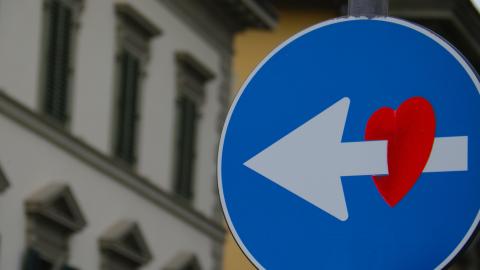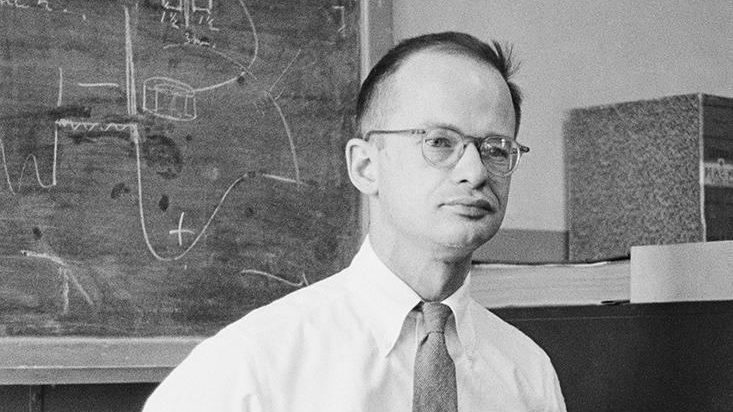How romantic love is like addiction

Photo by Nick Fewings on Unsplash
- Many writers have commented on the addictive qualities of love. Science agrees.
- The reward system of the brain reacts similarly to both love and drugs
- Someday, it might be possible to treat “love addiction.”
Since people started writing, they’ve written about love. The oldestlove poem known dates back to the 21st century BCE. For most of that time, writers also apparently have been of two (or more) minds about it, announcing that love can be painful, impossible to quit, or even addictive — while also mentioning how nice it is.
The idea of love as an addiction is one that is both familiar and unsettling. Surely it can’t be the case that our mutual love with our partner — a thing that can produce euphoria, consumes a great deal of our time, and which we fear losing — can be compared to a drug habit? But indeed, many scientists have turned their attention to the idea of “love addiction” and how your brain on drugs might resemble your brain in love.
Love and other drugs
In a 2017 article published in the journal Philosophy, Psychiatry, & Psychology, a team of neuroethicists considered the idea that love is addicting and held the idea up to science for scrutiny.
They point out that the leading model of addiction rests on the notion of a drug causing the brain to release an unnatural level of reward chemicals, such as dopamine, effectively hijacking the brain’s reward system. This phenomenon isn’t strictly limited to drugs, though they are more effective at this process than other things. Rats can get a similar rush from sugar as from cocaine, and they can have terrible withdrawal symptoms when the sugar crash kicks in.
On the structural level, there is a fair amount of overlap between the parts of the brain that handle love and pair-bonding and the parts that deal with addiction and reward processing. When inside an MRI machine and asked to think about the person they love romantically, the reward centers of people’s brains light up like Broadway.
Love as an addiction
These facts lead the authors to consider two ideas, dubbed the “narrow” and “broad” views of love as an addiction.
The narrow view holds that addiction is the result of abnormal brain processes that simply don’t exist in non-addicts. Under this paradigm, “food-seeking or love-seeking behaviors are not truly the result of addiction, no matter how addiction-like they may outwardly appear.” It could be that abnormal processes cause the brain’s reward system to misfire when exposed to love and to react to it excessively.
If this model is accurate, love addiction would be a rare thing — one study puts it around five to ten percent of the population — but could be considered a disorder similar to others and caused by faulty wiring in the brain. As with other addictions, this malfunction of the reward system could lead to an inability to fully live a typical life, difficulty having healthy relationships, and a number of other negative consequences.
The broad view looks at addiction differently, perhaps even radically.
It begins with the idea that addiction exists on a spectrum of motivations. All of our appetites, including those for food and water, exist on this spectrum and activate similar parts of the brain when satisfied. We can have appetites for anything that taps into our reward system, including food, gambling, sex, drugs, and love. For most people most of the time, our appetites are fairly temperate, if recurring. I might be slightly “addicted” to food — I do need some a few times per day — but that “addiction” doesn’t have any negative effects on my health.
An appetite for cocaine, however, is rarely temperate and usually dangerous. Likewise, a person’s appetite for love could reach addiction levels, and a person could be considered “hooked” on relationships (or on a particular person). This would put love addiction at the extreme end of the spectrum.
None of this is to say that the authors think that love is bad for you just because it can resemble an addiction. Love addiction is not the same as cocaine addiction at the neurological level: important differences, like how long it takes for the desire for another “hit” to occur, do exist. Rather, the authors see this as an opportunity to reconsider our approach to addiction in general and to think about how we can help the heartsick when they just can’t seem to get over their last relationship.
Is “love addiction” a treatable disorder?
Hypothetically, a neurological basis for an addiction to love could point toward interventions that “correct” for it. If the narrow view of addiction is accurate, perhaps some people will be able to seek treatment for love addiction in the same way that others seek help to quit smoking. If the broad view of addiction is correct, the treatment of love addiction would be unlikely as it may be difficult to properly identify where the cutoff of acceptability on a spectrum should be.
Either way, since love is generally held in high regard by all cultures and doesn’t quite seem to be in the same category as a bad cocaine habit in terms of social undesirability, the authors doubt we’ll be treating anyone for “love addiction” anytime soon.





